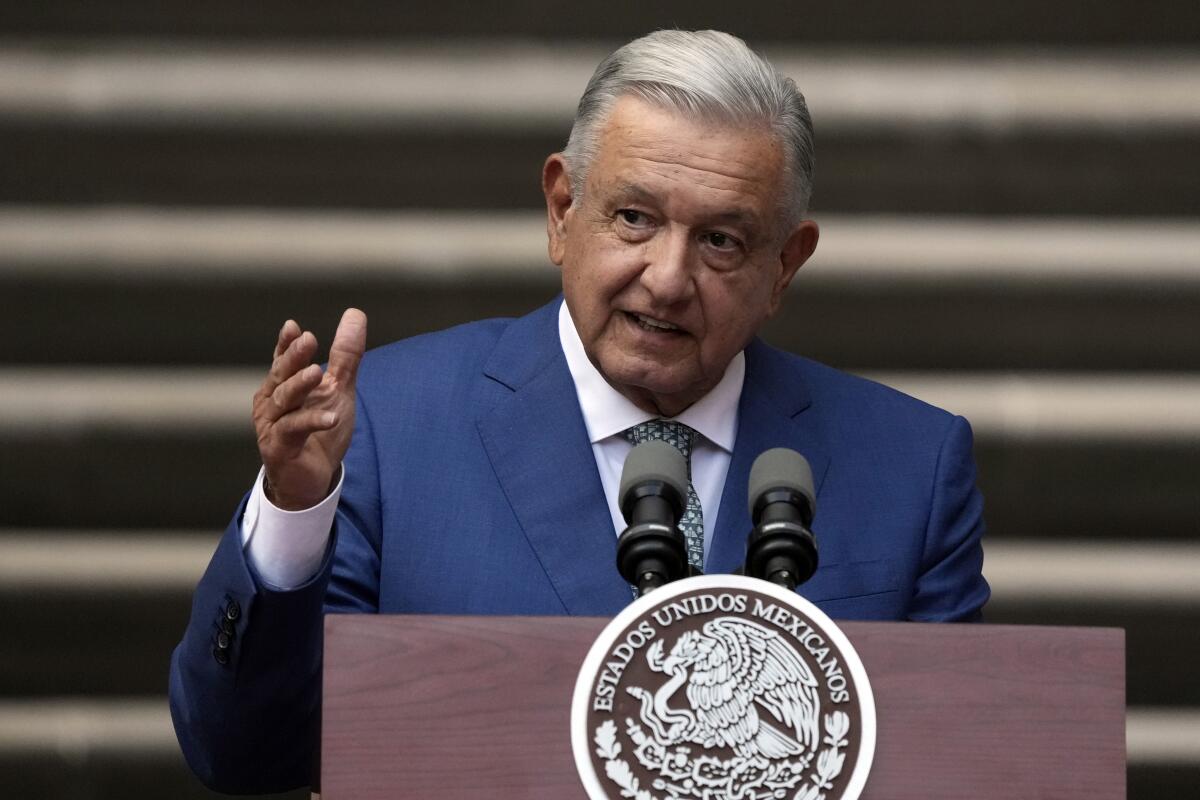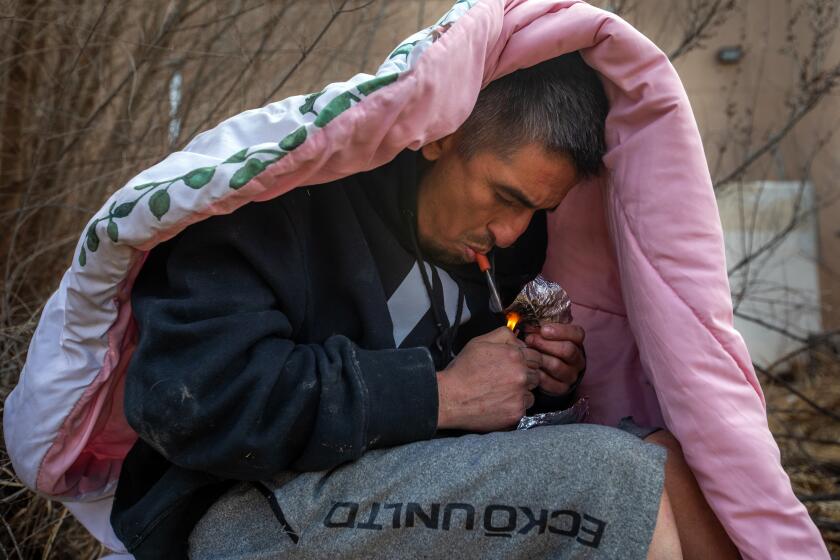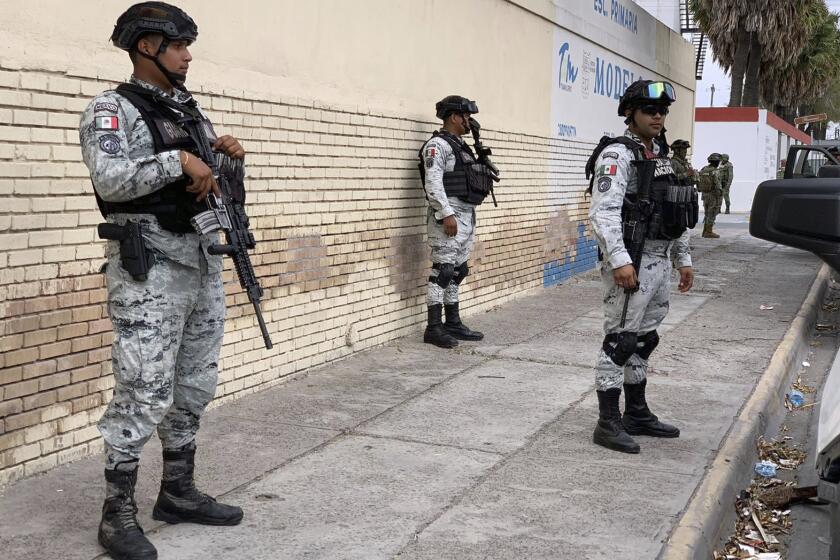Mexico complains to China about U.S. pressure over fentanyl

- Share via
MEXICO CITY — Mexico’s president on Tuesday asked China for help in halting chemicals used by Mexican drug dealers to illegally produce fentanyl, while also complaining of U.S. pressure to curb the drug trade.
President Andrés Manuel López Obrador has previously said that fentanyl is the United States’ problem, caused by “a lack of hugs” in families. On Tuesday, he went further, venting in a letter to Chinese President Xi Jinping about “rude threats” from U.S. legislators over the drug trade.
López Obrador complained about calls in the United States to designate Mexican drug gangs as terrorist organizations.
Some Republicans have said they favor using the U.S. military to crack down on the Mexican cartels.
“Unjustly, they are blaming us for problems that in large measure have to do with their loss of values, their welfare crisis,” López Obrador wrote to Xi in the letter, which was published Tuesday. “These positions are in themselves a lack of respect and a threat to our sovereignty, and moreover they are based on an absurd,
manipulative, propagandistic and demagogic attitude.”
After venting for several paragraphs, López Obrador brings up China’s exports of fentanyl precursors. He asks Xi to help curtail shipments of chemicals that Mexican cartels import from China.
The town of Española, N.M., has struggled with drug addiction for generations. But fentanyl has contributed to rising homelessness and overdose rates.
“I write to you, President Xi Jinping, not to ask your help on these rude threats, but to ask you for humanitarian reasons to help us by controlling the shipments of fentanyl,” the Mexican president wrote.
China has taken steps to limit fentanyl exports, but mislabeled or harder-to-detect precursor chemicals continue to pour out of the country’s factories.
It was not immediately clear if Xi had received the letter or if he had responded to it. López Obrador has a history of writing confrontational letters to world leaders without getting a response.
López Obrador has angrily denied that fentanyl is made in Mexico. However, his own administration has acknowledged finding dozens of labs where the drug is produced, mainly in the northern state of Sinaloa.
Most illegal fentanyl is pressed by Mexican cartels into counterfeit pills made to look like medications such as Xanax, oxycodone or Percocet, or mixed into other drugs, including heroin and cocaine.
Many people who die of overdoses in the United States do not know they are taking fentanyl.
Over the last week, López Obrador has fixated on press reports that the NBA, in talks with the players union, had offered to stop testing or penalizing players for using marijuana.
Mexican President Andrés Manuel López Obrador lashes out at Republicans who want to send U.S. troops, telling them to solve the U.S. fentanyl problem.
The Mexican president took that as evidence of U.S. social and moral decay, even though Mexico has legalized the growing of marijuana for personal and medical use.
“We are seeing the basketball league has authorized players to smoke marijuana,” López Obrador said. “How can that be? Imagine, in sports! It shouldn’t be allowed anywhere.”
López Obrador on Tuesday reiterated his advice to strengthen what he called family values in the U.S. He claims Mexico’s close-knit families have allowed it to avoid a fentanyl crisis — though the country has a huge problem with domestic methamphetamine use.
“I would tell them, for example, to keep their children at home longer, don’t kick them out of the house, keep them [at home] for two or three years more,” López Obrador said during a news conference.
Fentanyl is a synthetic opioid trafficked by Mexican cartels that has been blamed for about 70,000 overdose deaths a year in the United States.
Experts say Mexican cartels are making so much money from the U.S. that they see no need to sell fentanyl in their home market.
More to Read
Sign up for Essential California
The most important California stories and recommendations in your inbox every morning.
You may occasionally receive promotional content from the Los Angeles Times.












